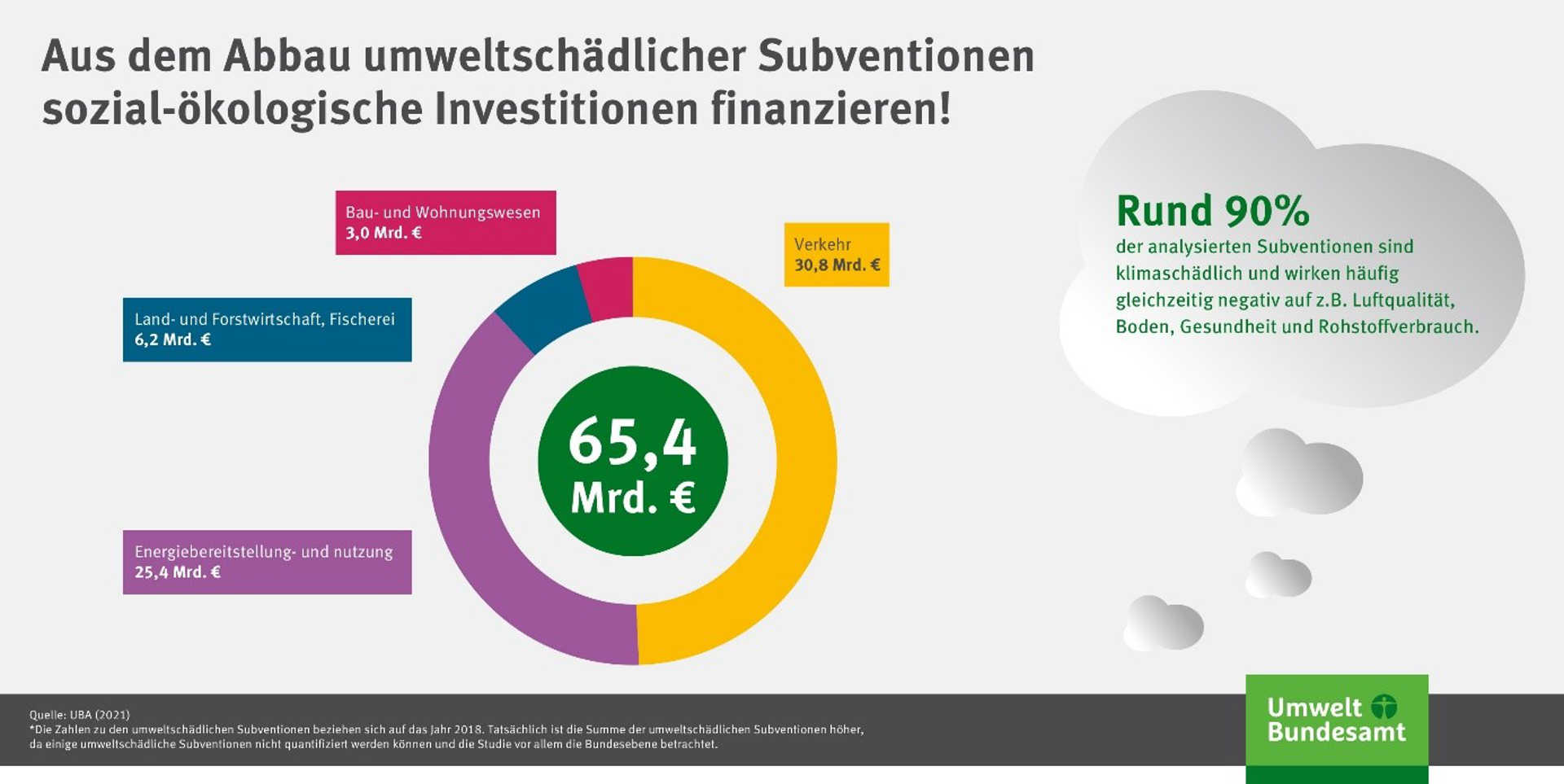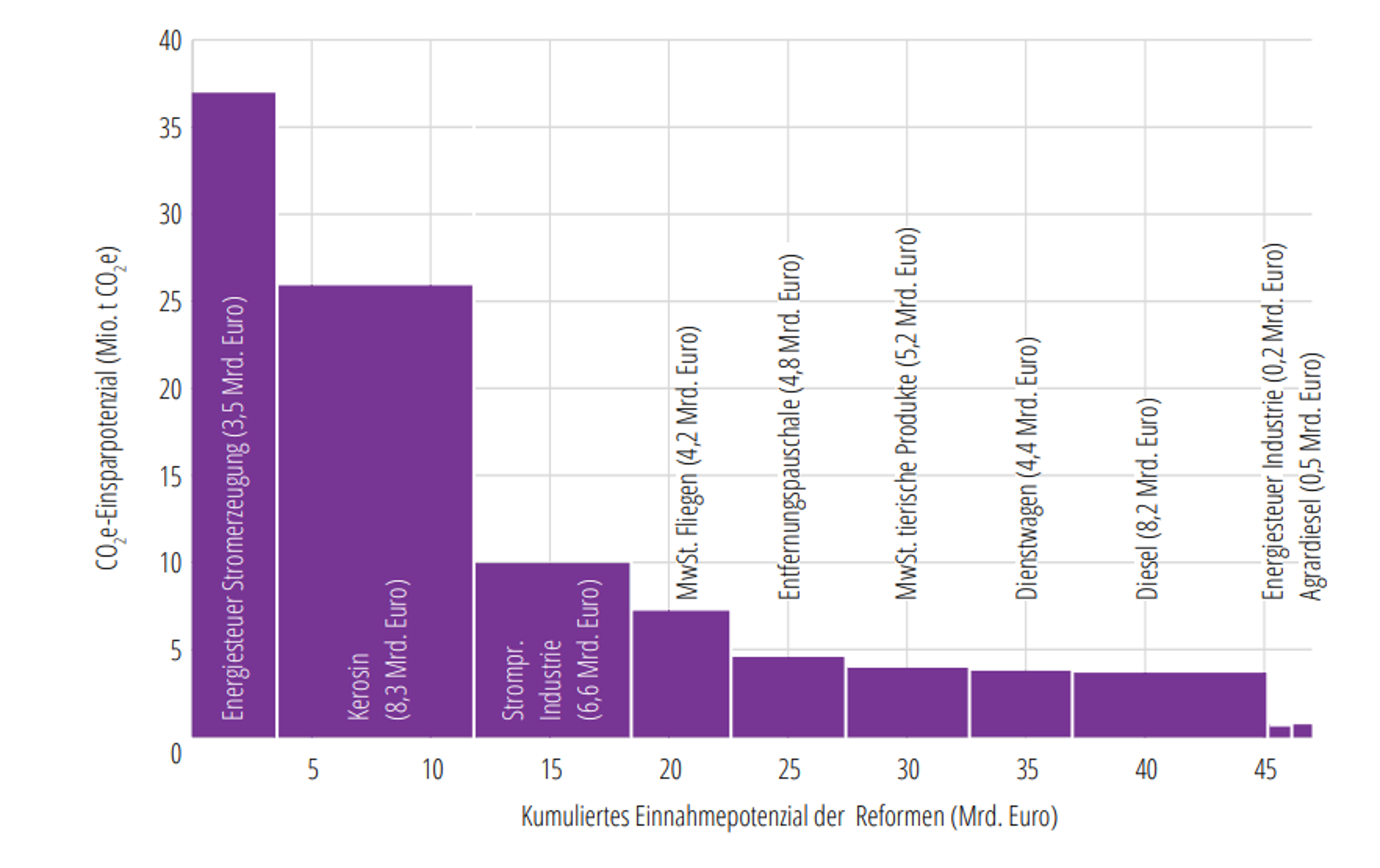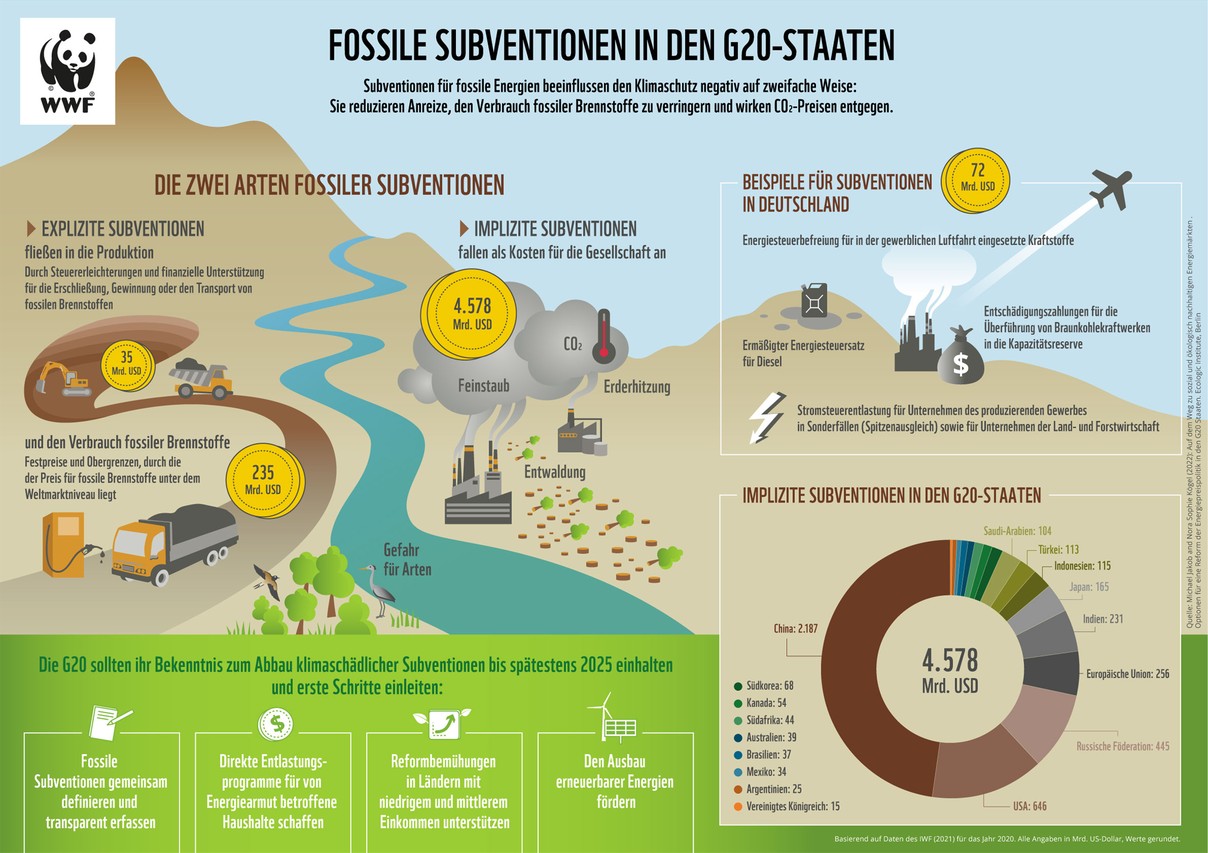“We want to gain additional budgetary flexibility by reducing unnecessary, ineffective and environmentally and climate-damaging subsidies and spending in the budget.”
When the traffic light coalition reaffirmed this commitment in its coalition agreement in December 2021, it gave hope. Would public finances soon no longer fuel the climate crisis and subsidies and tax breaks for coal, oil and gas become a thing of the past?
Where the subsidies go
The last subsidy report from the Federal Environment Agency (UBA) gave us 65.4 billion EURwhich made it easier for fossil fuels to survive in 2018. A good half of this goes to the transport sector and another 25 billion. EUR on the provision and use of energy.
Follow us on social media
Given the worsening effects of the climate crisis worldwide and all efforts to reduce greenhouse gas emissions, this is counterproductive. At the same time, some, albeit too few, future investments are already being made in renewable energies, energy efficiency and e-mobility. What speaks against aligning all financial flows with the 1.5 degree limit?

Lack of focus on climate protection
The Russian war of aggression on Ukraine and the “relief packages” following the energy crisisagainst high energy prices aggravated the fossil finance trend in part further. instruments, such asem Fuel discount and in particular The relief packages for industry lacked direction to climate protection. Can do this This is exactly where the course is set for a future-proof, defossilized economy and stranded investments avoided become.
Relief for companies should for it in return for achieving climate goals be tied. We have the right suggestions here. FOssile dependency and rising energy prices let's leave fastest behind usif we renewable energies quickly expandenergy efficiency increase andnd us from the financing of Solve coal, oil and gas better today than tomorrow.
Don't miss anything with the WWF newsletter!
Already before the fossil energy crisis flowed Billions in aid to industry and helped maintain the status quo cementieren. Approximately 25.4 billion EUR paid for it, eto relieve energy-intensive companies in international competition through preferential treatment of electricity and energy taxes. But the benefits are given across the board according to the watering can principle, regardless of whether companies are actually in international competition or not. Alternatively, benefits could be staggered according to trade and electricity intensity and only support companies that are actually at risk.
Greatest potential: transport sector
The greatest potential However, there is a need for financial restructuring in the transport sector. 30.8 billion euros will flow loud UBA here approximately in the tax relief for diesel fuel compared to petrol, for the private use of company cars and in the flat rate travel allowance. The regulations create economic incentives for environmentally harmful behavior, lead to higher traffic volumes and higher air pollution and, above all, benefit higher earners.
Instead, could one after Mobility money based on different means of transport increases the incentive to travel to work using climate-friendly means of transport. A reform of the company car privilegethe at the moment above all new commercial registrations and combustion engine fpromotes, could incentivizethat more and more low-CO2 ones Cars bought and kilometers driven in total be reduced. Additional tax revenue could in the strengthening of the Public transport flow.

Social-ecological transformation necessary
The technologies with which we can achieve transformationwe know. We are already taking care of ourselves almost half with Electricity from renewable energies. JNow it's time to take the money into your hands and distribute correctlyto the Implementation to push forwardn. This makes climate-friendly technologies and a fossil-free future affordable for everyone.
As long as should Funds released through the reduction of subsidies are used for this purpose, to cushion social hardships and Climate protectiontzmeasures with one effectiven Social policy to flank and People with lower incomes. All resources should be aligned with the requirements of social-ecological transformation.

Impulses for a sustainable climate policy
A climate-friendly restructuring of subsidies would provide the public sector with additional revenue that could be used more sensibly elsewhere – in such a way that it makes the social-ecological transformation easier for everyone, instead of neutralizing investments in climate protection. The federal government should tackle this agreement in its coalition agreement as quickly as possible and within the framework of the G7 and G20who have a special responsibility here.
How the modernization of climate finance policy can be boldly designed and adjusted to the 1.5 degree target is explained WWF together with that FÖS developed in an impulse paper: Five impulses for a sustainable climate finance policy.
What role the G20 countries can play in the socio-ecological reform of energy pricing policy is here to read.
You can hear more about the topic in our podcast episode: “Money from the State: About the sense and nonsense of subsidies”.
Follow us on social media:


